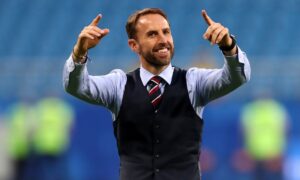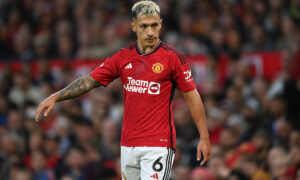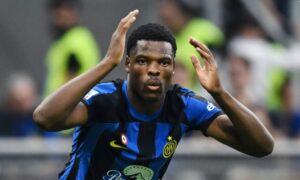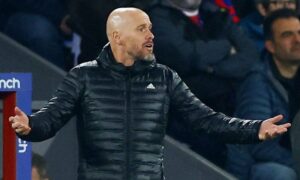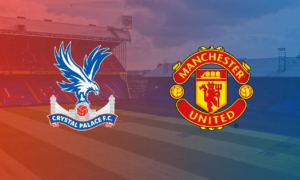Manchester United manager Ole Gunnar Solskjaer has stepped down from his managerial post. For some, this may be good news, while for others, it may be bad news, but one thing is certain: there is a sense of relief.

Relief, because the Norwegian’s three years at Man United have been emotionally and mentally tiring, to the point that you’d imagine even Solskjaer himself would welcome the chance to relax after such a demanding job.
The United great took over at a time when the club was in shambles on all fronts, and the previous manager, Jose Mourinho, had only added to the fire with a series of poor decisions.
Misguided signings, a bloated wage structure, a toxic dressing room, an academy devoid of some serious talent, a massively uneven squad, and a playing style that was so bad that Mourinho’s three trophies didn’t matter to the United fans. When Mourinho was fired in 2018, it was a horrible moment with nothing positive or exciting to look forward to, which is why most top-level managers were hesitant to take the job.
Must Read– Five players United should sell after sacking Ole Gunnar Solskjaer
Solskjaer was appointed interim manager, and all United fans are familiar with the story: the team went on a great run, exciting football returned, the bad form changed with a phenomenal comeback against PSG in the Champions League, and the team then suffering from injuries being playing wholeheartedly.
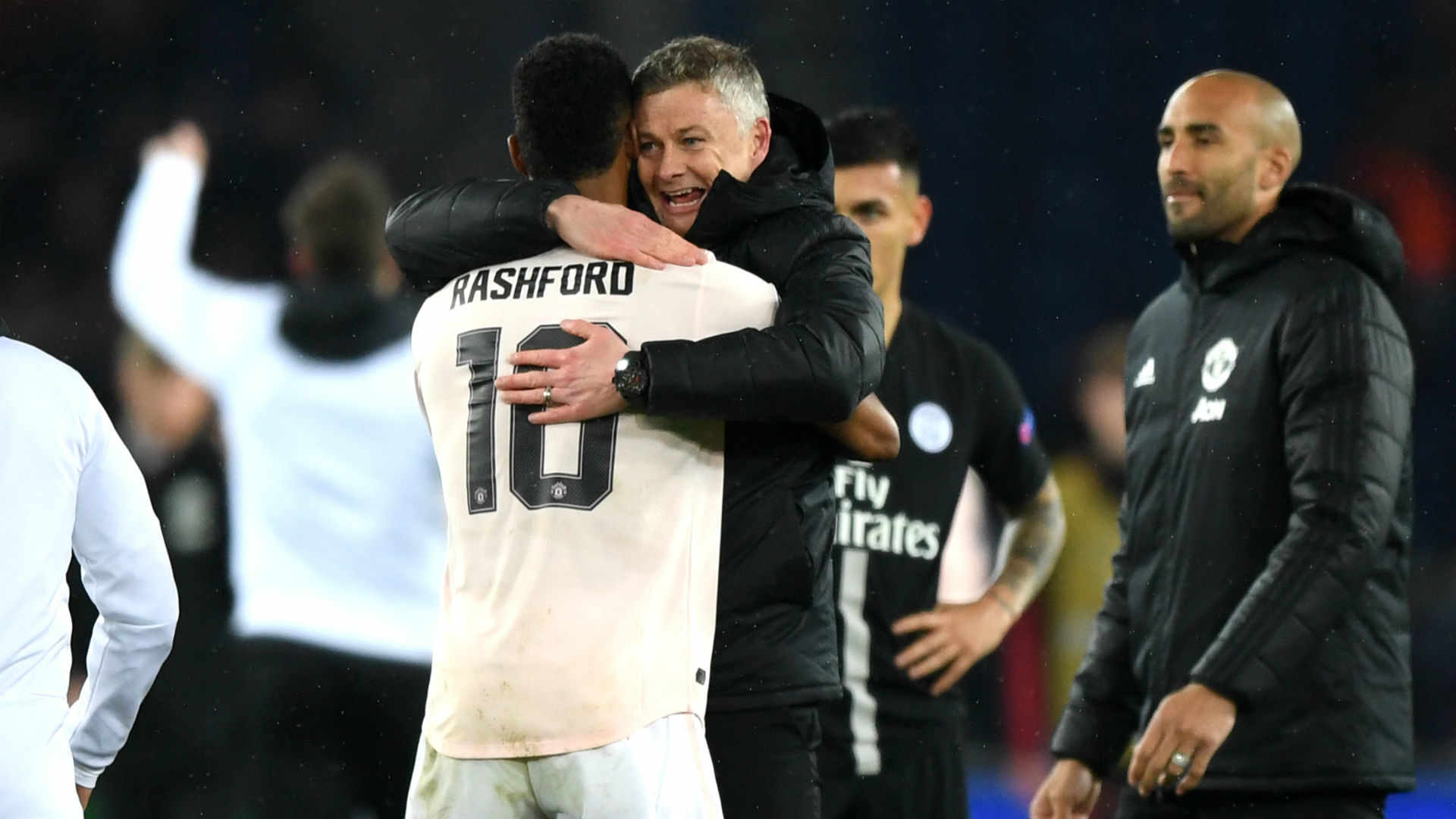
After Paris, Ole was appointed permanent manager and led the team through two seasons of highs and lows, as well as squad building that, regardless of how you judge it, will prove crucial for the future manager.
Solskjaer built his first starting XI against Cardiff City, a club that had sacked him years back.
📍 We have arrived in Cardiff! #MUFC pic.twitter.com/cP0vSU2kKA
— Manchester United (@ManUtd) December 22, 2018
Unlike his predecessors, the Norwegian has not won a trophy during his time at United, but he has built something far more lasting than David Moyes, Louis van Gaal, and Jose Mourinho, which is developing a squad with genuine quality to challenge despite a few flaws (more on that later) and helping to inject the academy with numerous promising young players (although, to be fair, he was certainly helped by his former teammate, Nicky Butt).
All of this while being heavily criticized by rival fans, the media, and a significant portion of United fans, including popular YouTube channels and similar outlets.
While criticism is necessary in football and any other profession in order to grow and progress, there is a significant difference between healthy criticism and what Solskjaer has experienced.
Attacks on his personality, the way he acted on the sidelines, the fact that he didn’t yell at the players in public, the fact that he didn’t throw anyone under the bus in press conferences (apparently “a sign of weakness” and “lack of leadership”), and capturing images of him smiling after a loss to suggest he didn’t care about the game.
Things that have nothing to do with football and are highly shallow, especially when you consider that there have been several managers with personalities that are quite similar to Ole’s and have gone on to be very successful.
After his dramatic final interview as United manager, Alan Tyers of The Telegraph tried to punch down on Solskjaer, who was on the point of tears.
I understand that they do and say these things to get clicks, reactions, and so on, but it got to the point where you couldn’t help but think it was personal, given that other managers, such as Frank Lampard or Mikel Arteta, were media favorites, and Solskjaer was treated like a public enemy, which undoubtedly influenced many people’s opinions on his tenure.
And don’t get me wrong: I’m not saying that the Norwegian’s time was perfect. By a long shot, no. If it was, he’d still be in charge of United. But this is where the real criticism begins, and we must appreciate that, while Ole was exceptional in many areas during his term, he was fired as a result of several major mistakes that he made, and he had to take responsibility for them.
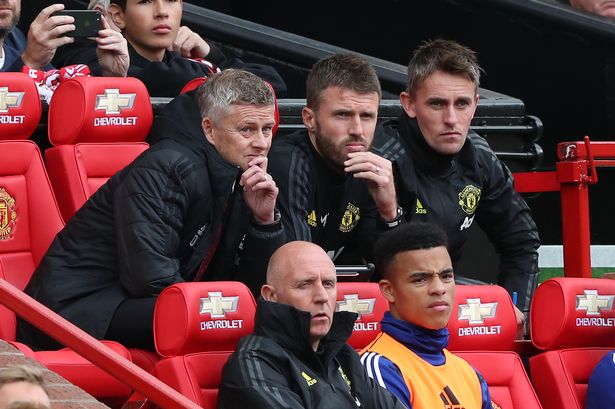
Even before the season began, the necessity for a central midfielder was critical, and Ole failed to deliver on that promise, which ultimately cost him his job. He wanted Declan Rice, but with the West Ham midfielder being unavailable, the Norwegian chose not to acquire anyone if he couldn’t get his first option, which is understandable, but the cost was far larger than the gain at the end of the day.
His over-reliance on Fred and Scott McTominay in the double pivot, called as McFred, dumped up one of Solskjaer’s worst tactics. That did work against PSG but not after that.
Choosing the Brazilian and the Scotsman as his defensive midfielders, even though they are not good enough as squad players, was a huge mistake, and it showed when the club required more quality in that position. Nemanja Matic, who was getting older, didn’t have much to provide.
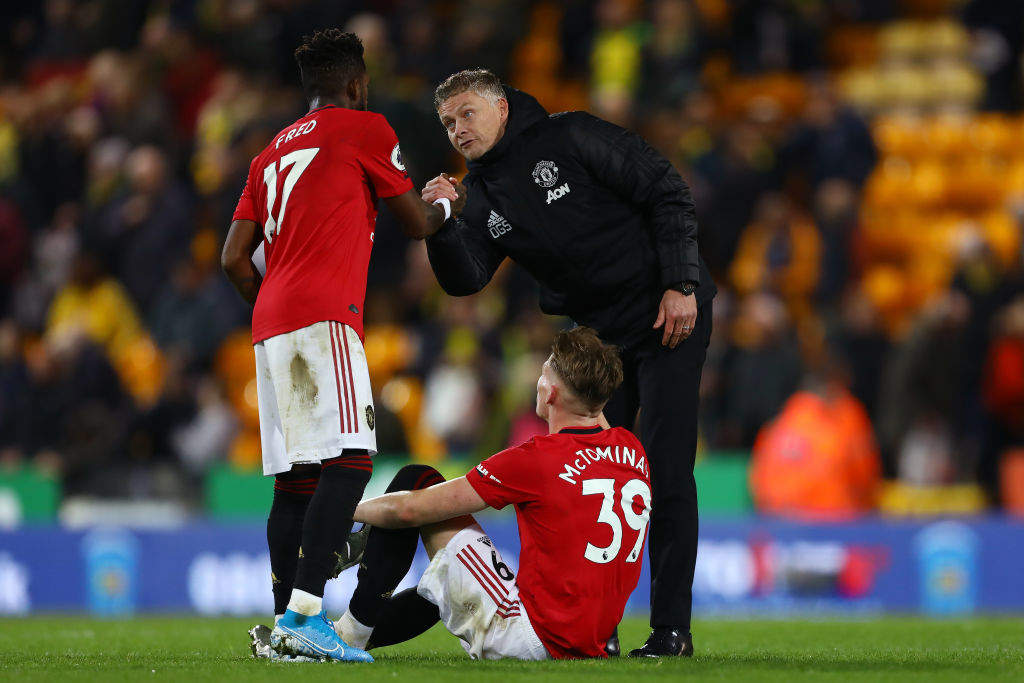
Of course, his desire for dependency while playing Paul Pogba might also be a huge mistake made by Ole, and I would go so far as to say it was the worst decision he has made as Manchester United manager. Pogba started finding his feet as Mourinho lost his job and was possibly in his best form as a United player, but as history has shown us over the years, the Frenchman is a player of a few matches, not seasons.
Pogba, as he has shown during Solskjaer’s tenure at the club, is a player who can have a good month, and a bad month, and, while he has the ability to be one of the best five players in the world, he has never demonstrated any consistency, despite Ole’s attempts to bring the best out of him in various positions.
Pogba once banished a report from The Sun which claimed that the player has been snubbing the manager.
Big lies to make headlines pic.twitter.com/VBQiBxSuNO
— Paul Pogba (@paulpogba) October 27, 2021
During his interim stint, Pogba was a part of a midfield three, playing as a false left winger in the pivot… Ole tried him in a variety of positions, with inconsistent results. And you can’t help but think that the Norwegian put his trust in the wrong man and that over-dependency on Pogba got him sacked, especially by trying to adjust a notoriously inconsistent performer.
Of course, Pogba was not entirely to blame. Solskjaer’s tactical inadequacies were exposed at several points during his tenure, and this is likely what finally broke the camel’s back: a lack of tactical expertise to take this squad’s performances to the next level.
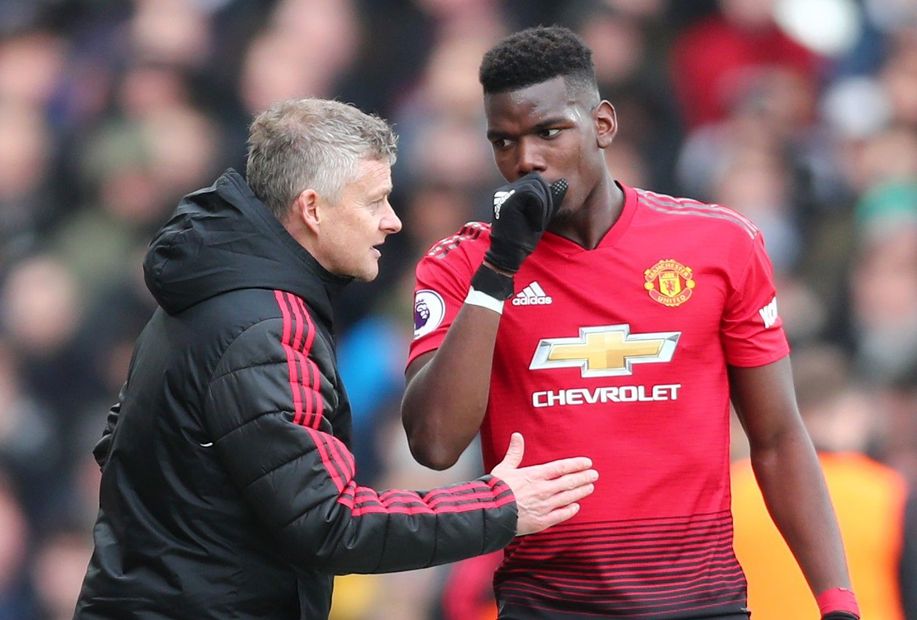
There were some games and moments of fast-paced, burning football where Ole and his coaching staff got it right, making up for the best moments of the post-Ferguson era, but the team struggled tactically overall, as evidenced by recent months where Ole never found an answer to get consistent performances.
This last point is the result of two factors, one of which is that the players no longer believe their approaches are the best for winning. Beyond Pogba, I’m not sure which players have thrown in the towel, but it’s worth noting that even if they haven’t, a lack of belief in the manager’s ideas and techniques is clear evidence that the ship has sunk, and it’s ultimately the manager’s fault.
This season’s second half against Manchester City was awful, and it revealed a group of players who were unable to run for their boss and their own self-respect, highlighting how Ole might have departed sooner, especially after the Liverpool defeat.
The coaching staff is another consideration. One of Sir Alex Ferguson’s greatest characteristics, as he has repeatedly emphasized, is that changing your coaching staff can result in new ideas and tactical perfections being introduced to your techniques.

Ole’s coaching staff, with the exception of Mike Phelan, was inexperienced, and this was evident throughout his time, particularly near the end. And the presence of a tactically sharp coach might have swung things in a different direction. There is nothing wrong with having youthful coaches, but they must be tempered by experience, and Solskjaer may have been penalized for being too devoted to his players.
Many people have blamed Solskjaer’s problems on the signing of Cristiano Ronaldo, claiming that he had to adapt a player he didn’t ask for to his system. While this is true, I don’t believe it was his fault because any other United manager would have faced the same situation.
Ole was only a few minutes old when it happened, and now the future manager will have to figure out how to get the team to function with Cristiano in the starting lineup, with all the benefits and drawbacks that involves.
Add to that Ole’s poor squad rotation, which was acceptable at first owing to squad limits, but it really became a problem as his options grew, and he tended to stick with the same set of players. While it is true that managers normally have their go-to players, he would have been better off giving other players a chance.
Ole fell short in this area. We can point out other little aspects, but no matter how great a manager is, they will make mistakes from time to time–these are the concerns I believe are the most relevant and worth mentioning.
I would go so far as to say that, despite not being able to win trophies, which is, of course, crucial at a club like Manchester United, Ole was the first manager of the post-Ferguson era.
His squad-building abilities, as previously said, have proven to be pretty impressive. Sure, not signing a midfielder proved to be costly, but he has assembled a strong enough squad that many elite managers would be salivating to get their hands on it. None of Moyes, van Gaal, or Mourinho were able to accomplish this feat: leaving the squad in far better shape than when they arrived. And in the future years, this will be critical.
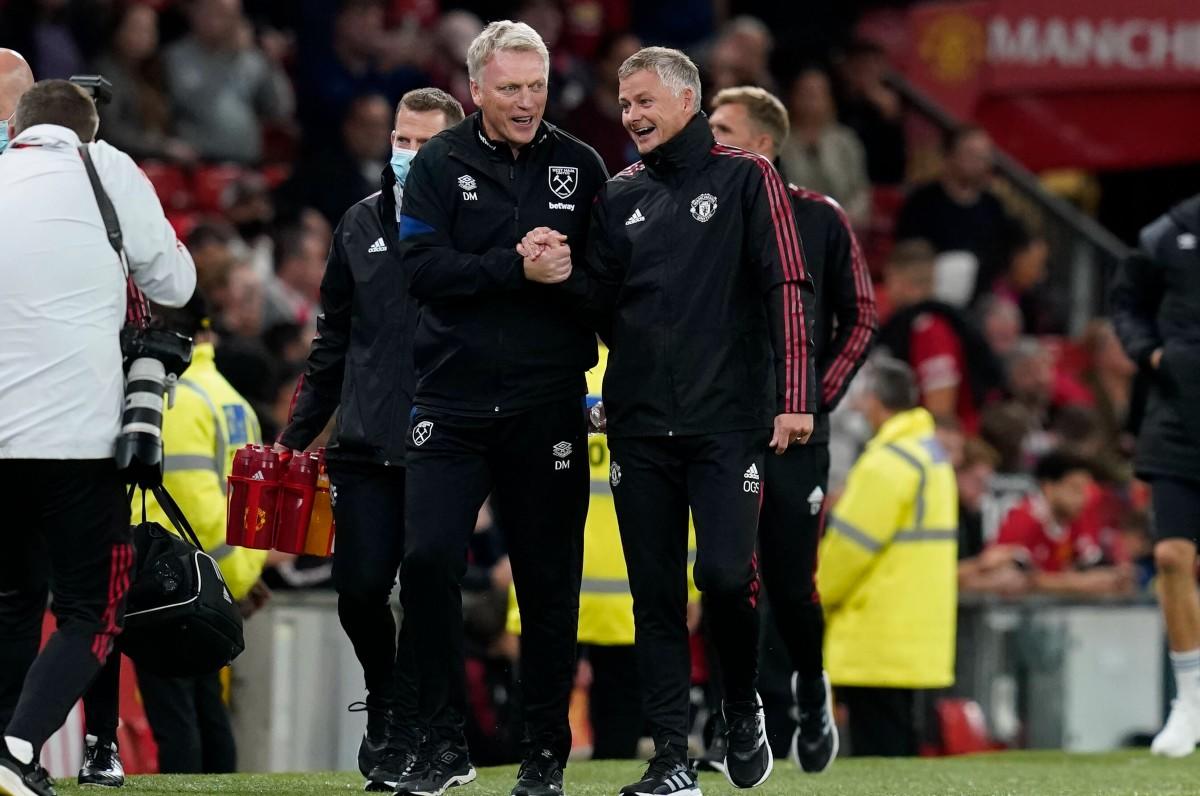
He was successful in developing players and assisting them in realizing their full potential. Marcus Rashford transformed from a frustrating teenage prospect to a full-fledged superstar under Ole Gunnar Solskjaer, and his numbers skyrocketed.
Mason Greenwood was given his first start and has grown into the player he is now. While still not a world-class player, Scott McTominay improved dramatically under Ole, and his best performances in a United shirt came with the Norwegian.
In the 2019/20 season, he received more than thirty goals from Anthony Martial, and in the 2020/21 season, he helped Luke Shaw realize his potential.
Marcus Rashford has scored more Premier League goals under Ole Gunnar Solskjaer [35] than any other player.
A huge boost to have him back. 🔴 pic.twitter.com/aFya20Z1O3
— Statman Dave (@StatmanDave) October 13, 2021
While critiqued, players like Fred and Victor Lindelof performed far better under him than under Jose Mourinho. The list goes on and on.
While the football wasn’t always consistent, which ultimately ruined Ole, the high points were among the best of the post-Ferguson era. The sheer thrill, adrenaline, and intensity of Solskjaer’s prime as a United manager were addicting, demonstrating how strong of a bond he had forged between the players and the fans, which had been long absent under prior managers.
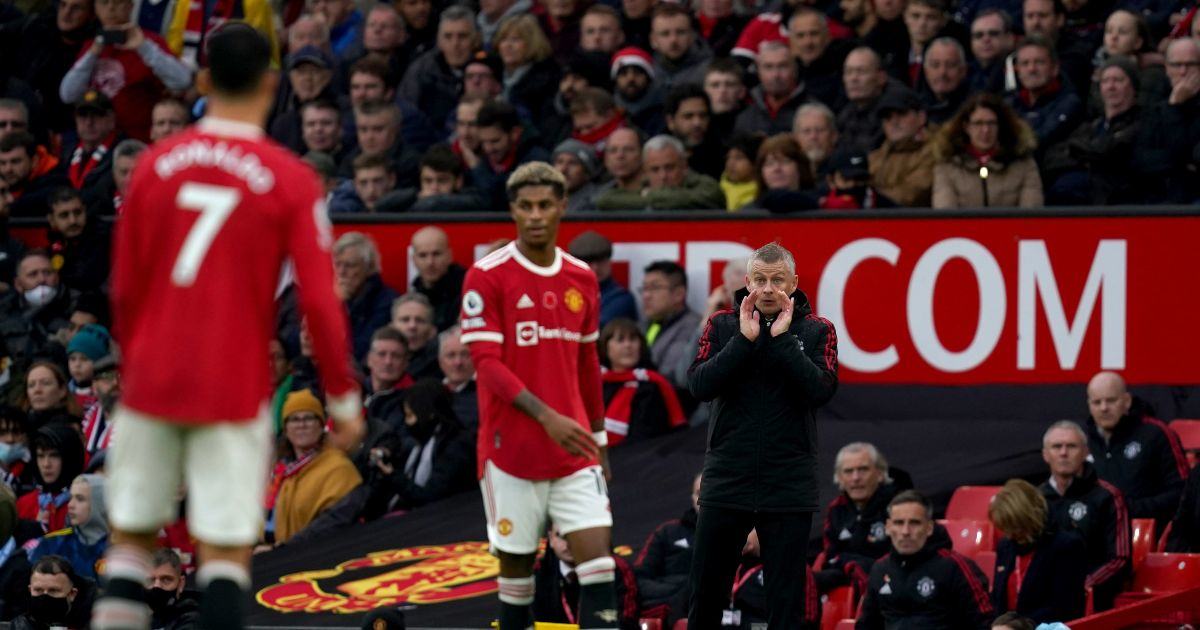
The thrashings of Roma, Southampton, and Leeds, the never-ending comebacks, the big game victories over top managers like Guardiola, Pochettino, Sarri, Klopp, Nagelsmann, and Tuchel, among many others, that night in Paris, the away record… you can’t tell me you’re a United fan and those big moments with Ole don’t make you smile when you remember them.
And it’s because Ole brought back something extremely primordial and fundamental in football: United fans’ joy and excitement for the game. No one can dispute that United under Ole was boring, whatever their problems. And a Manchester United team should never be dull.
After so many years of football sadness under Moyes, van Gaal, and Mourinho, a guy who lived and breathed United rekindled the flame between the club and its followers. An individual who thoroughly comprehended the institution’s values and gave it his all.
United. Always.
🔴⚪⚫#MUFC pic.twitter.com/H57iPf0KuZ
— Manchester United (@ManUtd) November 21, 2021
People constantly questioned his credentials, his personality, his values, and even his smile for the sake of likes, clicks, and reactions since he got the job on a permanent basis. Despite all of this, he never spoke a nasty word, never insulted the media, never threw a player under the bus (even when they deserved it), and was a true gentleman throughout his whole time.
After so many years, he proved that there was still hope at Old Trafford. A man who instilled in us the belief that mountains are meant to be climbed.
Ole, best wishes. It’s been a joy having us as our manager.
And that was a wild ride.




